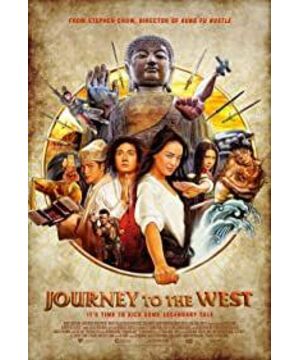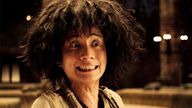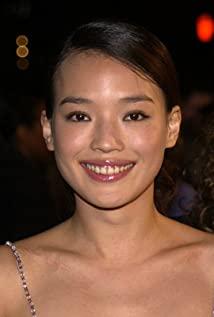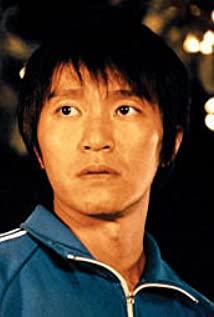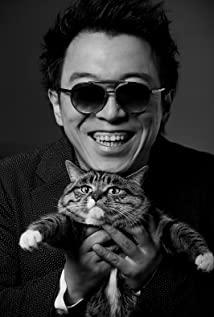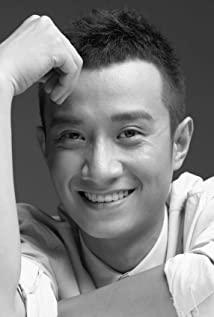to go to the night show "Journey to the West to Conquer the Demons" at 1:00 in the morning. At first, I didn't have too many expectations. After all, after "Big Talk", whether it is "Yueguang" or "Love" Epilepsy is not so satisfying. I will go to see Conquering the Demons because my mother bought a ticket on a whim.
And if a movie is not viewed with harsh eyes at the beginning, then you will get a lot of surprises instead.
The nearly two-hour movie, I thought I was sleepy after watching it, but I didn't think that I was still full of energy when I came out. No matter what else, just being able to watch it late at night without feeling sleepy, this movie is half the success.
Walking on the way home, the empty road is rarely seen with cars, but when I think about it again, I suddenly find something like a surprise.
First of all, in fact, the director told us the ending at the beginning - Xuanzang would convert to Buddhism (in fact, everyone knows this, so I think it would be better if the director left Journey to the West), what I say here is to tell us, not to mean We are familiar with the case of Journey to the West.
At the beginning of the film, the little girl has experienced all kinds of longevity and is eventually eaten by the big monster who is the incarnation of the sand monk. Here we may think like this, the little girl is innocent and ignorant, which symbolizes Tang Sanzang who knew nothing at that time— - It should be said to be Xuanzang. And the little girl was hated because of the pain, so she turned into a monster to eat it, indicating that Xuanzang would also fall into the pain of the mundane (meaning that he and the exorcist couldn't have feelings for him), but in the end, the monster fish was changed, indicating that Xuanzang would eventually Refuge in Buddhism.
Secondly, it is about the symbolic meaning of the characters in the play.
The little girl has already said it, so I won't repeat it.
Then talk about his three apprentices.
The Buddha said, "Three sufferings in life: resentment and hatred meet, love separates, and nothing to seek."
One is Sha Seng.
He was beaten to death because he was mistaken for hurting people for saving people, and was thrown into the water to be swallowed by ten thousand fish.
He committed the "resentment meeting" among the three sufferings.
The second is Pig Bajie.
He loved his wife but was betrayed, so he vowed to kill all the nympho women all over the world.
He committed the "parting love" among the three sufferings.
The third is Sun Wukong.
He was trapped at the foot of Wuzhi Mountain for five hundred years, waiting for an epiphany to escape from this place, but never really had an epiphany. The freedom you want is the third.
He commits the "can't ask" among the three sufferings.
And finally, let's talk about Shu Qi as the most important heroine.
The exorcist played by Shu Qi, dares to love and hate, has the courage of a man and the gentleness of a little woman. Is a very likable character.
At the same time, Shu Qi's "resentment and hatred will meet, love will be separated, and no one will be able to ask for it" is also vividly reflected in Shu Qi. First of all, she
loves Xuanzang, but Xuanzang never responds and rejects him ruthlessly
.
Obviously already in love but at the juncture of death, this is "love parting".
On the other hand, in my opinion, she is actually the incarnation of Guanyin.
There are four points that can confirm this conclusion:
(1) The ring that Shu Qi gave to Xuanzang eventually turned into the constriction spell of Sun Wukong, and in the original Journey to the West, the constriction spell was given to Tang Seng by Guanyin.
(2) Shu Qi helped Tang Seng subdue the eldest Sha Seng, the second eldest Zhu Bajie, and the third eldest Sun Wukong. And they all came suddenly when Xuanzang was in danger, which is consistent with Guanyin's rescue of Tang monks from danger many times in the original work.
(3) "Three Hundred Songs of Brother Er" compiled by Shu Qi eventually became a Buddhist scripture. Indicates that he is a Buddhist.
(4) Guanyin once set up ninety-nine-eighty-one hardships for Tang monks. Here he incarnates Shu Qi, one is to promote Tang Seng's early enlightenment, and the other is to test Tang Seng (as can be seen from Shu Qi's repeated initiative) to
analyze so much, it is time to enter the main topic.
The first is the three apprentices of Tang Seng, who respectively symbolize the three sufferings of life. And from Master Xuanzang's mouth, we can also know that they were well-intentioned, but they were misunderstood or hurt, thus accumulating grievances and becoming demons.
It can also be said that becoming a demon is their helpless resistance to the established cold reality - people also have such a habit, since the soft will be hurt, it is better to become the hardest, as long as you don't hurt yourself - even if it hurts others for the price.
And their resistance was eventually "domesticated" by Shu Qi, a symbol of Guanyin, so they gave up these sorrows and devoted themselves to goodness. On the positive side, this is generosity, it is letting go, but on the other hand, does this also mean that personal resistance will eventually be defeated in the face of the greatest destiny, the "Buddha"?
From the perspective of the overall situation, they convert to Buddhism and go to the West to retrieve the Bible, which is a supreme merit for the benefit of the common people, but what about themselves? It's more of the helplessness that I can't even shoot a little wave because of my resistance to fate.
I always remember the phrase "what era, what great love, I don't understand".
Yes, what is great love? Great love is that the Son of God, Jesus, came to the world and used his own suffering to save everyone to the heaven on the other side. This is what we often call sacrificing the ego. In front of the big ego, everything becomes selfless and solemn, and it also makes everything cold and chilling.
Resistance is powerless, and only fate belongs to the individual. Just like only great love belongs to the times.
same. The director is trying his best to show something different, different from the images of the three apprentices in the "Journey to the West" in the past "children's films". Is it also a resistance to something that is vulgar in the mainstream?
Next, let's talk about Xuanzang as the protagonist.
I always remember seeing someone in another comment saying that Xuanzang was "ignorant" like everyone else. Suddenly hit by this sentence. Yes, Tang Seng didn't understand anything at first, he couldn't conquer demons, he couldn't fight, and he couldn't even get along with girls.
But because of fate, he has to suffer in life.
The resentment meeting, he watched others suffer but was powerless and resented himself for being incompetent,
love parted, he loved Shu Qi but in the end saw the red face turn to dry bones,
and he couldn't ask for it, when he understood love, the people he loved have been scattered and become thousands of dust
and all of this , all because of his predetermined destiny - his master had said at the beginning that he would be the best demon slayer, just a little bit.
And that little bit is his given suffering.
No matter what he did, he still returned to suffering, and then attained the golden body of Dharma in the suffering.
Finally, you can also contact Zhou Xingchi's "Journey to the West". Like Wukong in "Dahua", Tang Seng was pushed into the stage of destiny in his ignorance. He didn't know anything, and fate had already begun to dance.
On this stage, what is lost is lost forever, and what is gained is only what others have given to you. So sad, sad to be unable to resist.
Three hardships in life: resentment meeting, love parting, and not being able to ask.
Life is the hardest, but it is only a trick of fate.
ps, about the rating:
special effects + 1
lines + 1
plot + 2
new ideas - 1 (The star is too fond of using the stalk of Journey to the West, which is a bit rustic, and at the same time, Shu Qi's confession before his death is also a bit contrived.)
(The above is just a personal opinion ~)
View more about Journey to the West reviews


